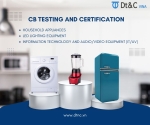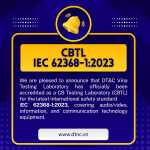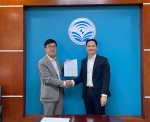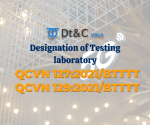[India] Parallel testing of BIS electronics allowed
India's BIS has published guidelines for the implementation of parallel testing of electronic products covered by BIS' Compulsory Registration Scheme (CRS). Therefore, if products and parts subject to BIS are not approved by BIS, they can be tested at the same time. In parallel testing, the laboratory tests the first component and issues a test report. This test report number, together with the name of the laboratory, is mentioned in the second part of the test report. After issuing the report, parts must be registered sequentially at BIS. An example of the procedure is below.
BIS laboratories/BIS accredited laboratories can test batteries without the cell's R-number. The laboratory will mention the laboratory's certificate number along with the laboratory name (instead of the cell's R number) on the battery's final test certificate. Similarly, labs can start testing cell phones without R-numbers for batteries and adapters in cells. The laboratory mentions the laboratory's test report number and laboratory name for these components on the phone's final test report. The laboratory must evaluate the cell's test report and issue the battery's test report. Similarly, laboratories must evaluate test certificates for batteries and adapters before issuing test certificates for mobile phones. Manufacturers can submit applications in parallel to register their parts. However, licensing is handled by BIS only after registering all parts involved in the manufacture of the finished product (i.e. mobile phone in this case).
[Mexico] IFT 5925-6425 MHz band classified as free spectrum
At the 4th regular meeting in 2023, the General Assembly of the Federal Telecommunications Agency of Mexico (IFT) decided to classify the 5925~6425MHz band as a free band and provide technical operating conditions that can coexist with existing domestic services.
The 500 MHz classification will allow new services to be offered with a technology known in Mexico as WIFi-6E. This classification allows to meet the short- and medium-term demand for free spectrum for communications using Wi-Fi technology, among others occupying this type of spectrum.
[Republic of Congo] Updated sample requirements for ARPCE type approval
The ARPCE of the Republic of the Congo issued Decree No. 2015-254, Article 7 of the Decree stipulates that generic samples are mandatory for type approval applications. ARPCE is currently enforcing this requirement. New and renewal projects currently in progress must provide normal samples to complete the application process, otherwise the application will be canceled.
[Thailand] SDOC procedure change
The National Broadcasting and Telecommunications Commission of Thailand (NBTC) recently held a meeting announcing important changes to the NBTC SDOC format and the introduction of a new electronic signature system. The purpose of the new changes is to streamline the process and increase efficiency, and will come into effect on February 6, 2023. Instead of a local importer's representative signing the SDOC, the Power of Attorney requires an individual's electronic signature. The local representative company is no longer required to sign the SDOC directly, although it still needs to issue a power of attorney. This change is only a minor change to the signature of the local representative at SDOC and is not expected to disrupt existing procedures in any way. In addition, NBTC will provide the importer with a draft SDOC, specifications, and device photos for reference when requesting a power of attorney.
[USA] Updated FCC US-Agent Requirements
The Federal Communications Commission (FCC) has amended FCC rule FCC 22-84 to protect against national security threats to the telecommunications supply chain through an equipment certification program. Changes effective February 6, 2023
U.S. representative requirements are as follows:
Agent must be in the US and must provide a US address/phone.
An agent may be a private entity or a corporate entity.
Companies acting as agents must have an FRN.
An agent cannot be or be affiliated with a TCB.
Agents cannot be or affiliated with (FCC accredited) testing laboratories.
Source: dtnc.co.kr







![[MIC] Officially issued QCVN 134:2024/BTTTT - National technical regulation on specific absorption levels for handheld and body-worn radio devices according to Circular 19/2024/TT-BTTTT of Ministry of Information and Communications](https://cdn0577.cdn4s.com/thumbs/qcvn-134_thumb_150.jpg)



![[Latest] Circular 02/2024/TT-BTTTT regulating the List of potentially unsafe products and goods under the management responsibility of the Ministry of Information and Communications](https://cdn0577.cdn4s.com/thumbs/trang-huy-hieu-the-loai-logo-2_thumb_150.jpg)

